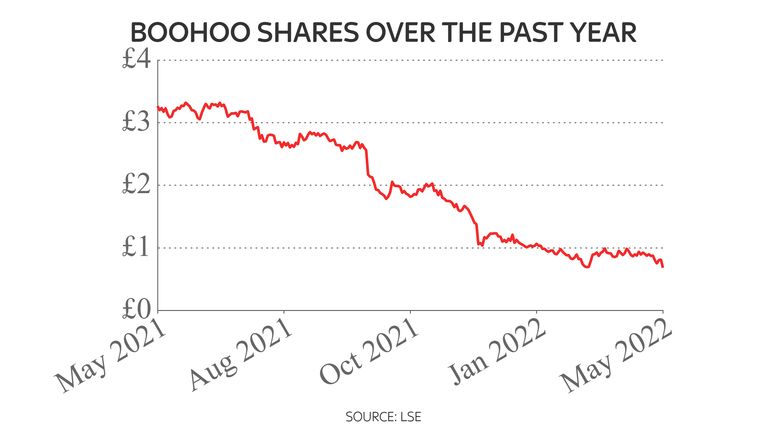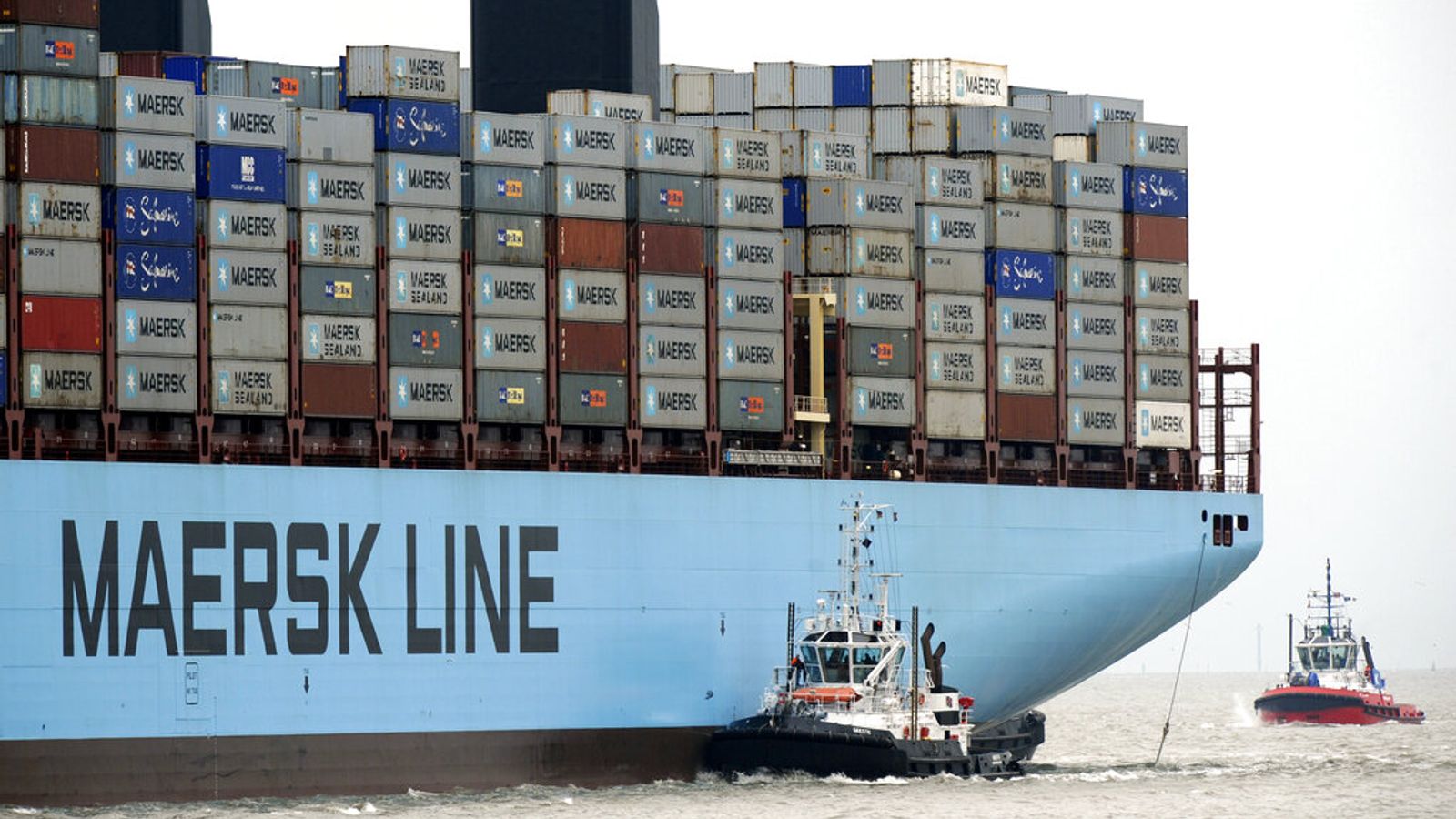[ad_1]
Boohoo, the online fashion retailer, has reported a collapse in profits as the business was hit by higher product returns and a surge in costs.
The company, which targets 16-40-year olds, enjoyed a 14% rise in revenue to almost £2bn in the year to February.
But Boohoo said its bottom line was savaged by significant freight and logistics cost inflation and warned that the pandemic-related factors will continue to impact it this year.
Pre-tax profits came in at £7.8m – down from £124.7m during the previous 12 months.
The decline also reflected a big increase in investment, including the opening of two new UK distribution centres, the relaunch of Debenhams as an online-only retailer and the integration and relaunch of the newly acquired Dorothy Perkins, Wallis and Burton brands.
The company had warned on annual profit in December and forecast that disruption to international deliveries and higher inbound freight costs would continue this year but said it was working to source more products from “near-shore” markets to reduce lead times.
John Lyttle, the chief executive, said he was targeting a figure of 60% from current levels of around 40% to ease exposure to elevated inbound air and sea freight costs from Asia – particularly China, which is continuing to face significant COVID disruption.
Boohoo said it would focus on retaining the market share gains it had made over the course of the past two years – saying it would maximise efficiencies where possible before passing prices on to consumers.
Its figures showed that gross margins had declined significantly over the past financial year, suggesting that customers were not yet being asked to foot much of the higher bills Boohoo is grappling at a time when consumers’ budgets are being squeezed by the highest rate of inflation for 30 years.
Mr Lyttle said Boohoo was winning market share in the UK and the US, and, over the last two years, had grown active customer numbers by 43% to 20 million.
But shares sank by more than 15% – building on sharp losses over the past 12 months.
Emily Salter, senior apparel analyst at GlobalData, said of the update: “This slowdown was inevitable as the group simply could not sustain such high levels of (sales) growth.
This will be apparent in FY2022/23, with the group expecting revenue growth to be in the low single digits, a sobering slowdown as it continues to feel pressures from the supply chain crisis, elevated returns rates and uncertain consumer demand.”
[ad_2]









